Estimate of Total Cost to Get Permanent Resident Status in Canada as Updated in 2025
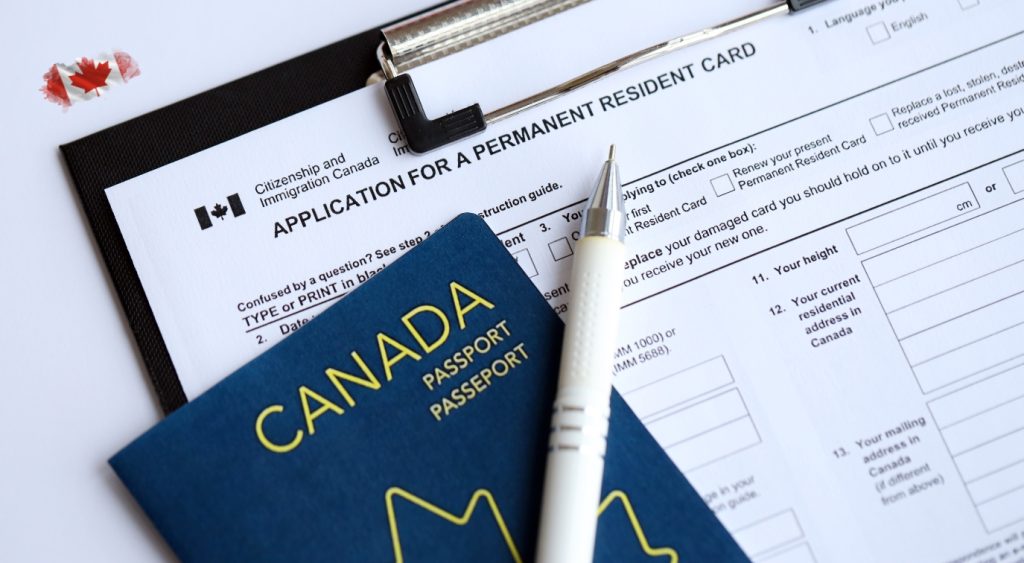
Canada, ranked multiple times as “Best Country to Live in” is one of the favourite destinations for immigration for its quality of life. However, neither the Immigration costs nor the cost of living come cheaper in Canada. Therefore, coming to a key question- “How much Total cost to Get Permanent Resident Status in Canada would be there, and the answer depends on the immigration program you choose out of multiple options of Immigration to Canada.
Some of the options are to Immigrate as an entrepreneur, investor, or someone with family ties in Canada. Indicative financial commitment required in various options, eligibility criteria, and step-by-step process in each category are shared below. We would also be discussing hidden costs that often crop up, thus upsetting all the budgetary calculations, to help you make a considered estimate of expenses while immigrating to Canada,hassle-free.
What are the various Options to Immigrate to Canada & their respective budgetary estimates?
As discussed above, there are multiple options to immigrate to Canada for both Temporary and Permanent Residency in Canada. Each program has different eligibility criteria and investment requirements for immigrant eligibility of the immigrants. Major of the programs and the expected cost are shared below:
1. Start-Up Visa (SUV) Program for Canada and its Cost Estimate
To boost the economy of Canada and to Canadian Start Up Visa Program is tailored to attract immigrants with the capacity to invest in Canada and to create jobs in Canada. The program intends that new immigrants should not take away current jobs in Canada and rather create jobs for Canadians.
Various Criteria for its eligibility are as follows:
-
Investment Required for Start Up Visa-
While there is no strict laid down limit for minimum investment in this category, but getting business idea and its feasibility needs to be validated by a designated business incubator. However, if startup is to be funded by a venture capital fund, minimum investment of CAD 200,000 is required. If funded by Angel investor minimum investment of CAD 75,000 is mandated.
-
Eligibility Criteria for Start-up Visa Immigrants
Potential immigrants must have a support approval letter from any Venture Capital/angel investor or an incubator. Investor immigrant must prove language proficiency as per laid-down norms for either English or French. Besides business investment, investors must have sufficient settlement funds (e.g., CAD 14,690 for a single applicant in 2025.
This option is ideal for innovative entrepreneurs with a sound, scalable business idea. Recognising the fact that the success of a business can be contingent on many events, this program offers PR without tying it to the success of the business.
2. Immigrating under Quebec Investor Immigration Program (QIIP) and Cost Estimate
Based on lines of Start-Up Visa program, Quebec Immigrant Investor Program (QIIP) is similar program for individuals who can make passive investment to get permanent residency in Canada.
The individuals need to invest in a government-guaranteed, interest-free investment for five years which would be due for refund at the end of the term. It also carries non-refundable contribution of CAD 200,000. Requisite investment can be through own funds or through funds of the spouse. Candidate should be having minimum two years of management experience in preceding five years and must be proficient in French language.
As against the Start-up Visa program, candidates in this program need not manage the business.
This program was suspended for a brief period later on was relaunched in January 2024 to boost Quebec’s economy through the Immigrants settling in Quebec.
Besides a non-refundable contribution of CAD 200,000 to Investissement Québec, investor has to make interest-free five-year investment of CAD 1.2 million.
3. Provincial Nominee Programs (PNPs) for Entrepreneurs and its Cost Estimate
Canada is also offering Provincial Nominee Programs (PNPs) for Entrepreneurs willing to immigrate to Canada. Again, as on lines of startup Visa Program, these programs also designed to attract immigrants who have capacity to invest setting up in business and this contribute to local economic development and employment generation.
Features vary from Province to Province, which are largely getting tougher.
Here is a brief overview of their key features:
- Each province (except Quebec and Nunavut) to manage its own entrepreneur stream with provisions that cater to respective provincial needs.
- Immigrants opting for this stream have option to start a new business or buy any existing one in the province they chose to immigrate.
- Requirements of Minimum Investment/ Net Worth vary from province to province but is generally as Networth between CAD 300,000 to $800,000 and minimum investment in business any where upwards of CAD $100,000 and ranges up to CAD$600,000+
This investment , with in given province may also vary depending on place where business is planned to be set up i.e., whether in urban centers or in rural areas.
- Applicants should have experience of running a business for at least 2–3 years as owner or in a Senior Management Capacity and be actively involved in the day-to-day management of the business.
- Businesses are required to create at least one or more job for Canadian citizens or permanent residents.
- Selected Applicants to enter into a performance agreement and be given a temporary work permit. If business milestones are met, they are eligible to be nominated for permanent residence.
- Desired Applicants are also eligible to visit Canada to have an Exploratory Visit to the province selected by them to understand the local market and community.
Expenses on Application for Immigration vary for each Provincial Program and generally range from CAD 1,000 to CAD 4,000.
Applications are approved within 9 to 24 months, depending on application backlog and other factors.
Provinces offering provincial nomination programs are Alberta, British Columbia, Manitoba, New Brunswick, Newfoundland and Labrador, Nova Scotia, Ontario, Prince Edward Island, Saskatchewan, Yukon and the Northwest Territories
4. Immigrating through Intra-Company Transfer (ICT) Visa
Immigrating through Intra-Company Transfer to Canada requires no Investment by the applicant, but the sponsor needs to transfer to its Canadian branch and maintain sufficient operational funds during the tenure of the posting. These funds generally should not be less than CAD 200,000.
To be eligible for this Visa, the candidate should have minimum of one year of experience in Managerial or higher capacity in similar position.
Initially the applicant gets Temporary Resident Visa, and after one year of working the applicant becomes eligible to apply for Permanent Residency status via Express Entry’s Canadian Experience Class (CEC).
5. C11 Entrepreneur Work Permit
Under this stream, if Immigration to Canada, there is no minimum requirement of Investment, but it will be helpful forthe applicant to have up to CAD 300,000 to demonstrate “significant benefit” to Canada.
A candidate should own at least 50% of a Canadian business, have a viable business plan, and sufficient funds to execute it.
Initially the applicant, once approved, is granted work permit and after successful running of business for minimum period of one year, the applicant becomes eligible to apply for Permanent Resident Status.
6. Family Sponsorship Program
Under this stream of immigration, no minimum investment is mandated from the applicant, but the sponsors must meet income thresholds (e.g., CAD 27,514 for a single sponsor.
For an applicant to be eligible to be sponsored, his sponsor must be a Canadian citizen/PR, 19+, and financially support the sponsored relative (spouse, parent, etc.).
Common Steps to Apply for Canada Immigration
Once the applicant chooses his desired stream for immigrating to Canada, he needs to compile the documentation for making application for immigration.
Typically the documents include, Statement of networth indicating the financial, Education credentials for applicants and all accompanying members, Experience whether as employment or as entrepreneur, Other documents as specified in application form for selected stream of immigration.
Hidden or Overlooked Costs while planning to Immigrate
Apart from the costs indicated above, a few costs stay hidden; however, the same too can amount to a sizeable sum in aggregate.
Some of these expenses are Consultancy Fees: CAD 5,000–20,000 if hiring an immigration lawyer, Job Search/ Consultant expenses: CAD 2,000–5,000, Travel & Accommodation: CAD 1,000–3,000 during application visits, Taking or Retaking of language proficiency Tests if scores are insufficient- CAD 300/test, Housing & Furnishing: CAD 10,000–30,000 for initial setup, Vehicle, if so desired to be purchased.
Please note that these are limited items, and based on individual requirements, the list and the amount indicated can vary.
Summing Up
Immigrating to and settling in any new country, whether Canada or any other, can be challenging, and costly, for multiple factors such as language barriers, job hunts, and cultural adjustments etc. Realistic budgeting for all expenses is key to avoid surprises later on. However, once settled, a high quality of life, economic opportunities, and a secure future for your family awaits you.
Frequently Asked Questions
How much investment is required for Canada PR?
It varies: SUV (CAD 75K–200K), QIIP (CAD 1.2M), PNP (CAD 150K–200K), ICT/C11 (CAD 100 K+).
Can I get PR without investment?
Yes, via Family Sponsorship or skilled worker programs like Express Entry, though income thresholds apply.
What’s the cheapest way to get Canada PR through investment?
The C11 Work Permit or SUV with incubator support offers lower entry costs (~CAD 100K).
How long does it take to get PR through investment?
6–36 months, depending on the program and processing times.
Do I need a lawyer for Canada PR investment programs?
Not mandatory, but recommended for complex applications (cost: CAD 5K–20K).
Can my family accompany me?
Yes, your spouse and dependent children can be included in your application for permanent residence, provided they meet the accompanying family member’s requirements, such as medical and security checks.
What if my application is denied by a province?
If denied, you can apply to other provinces with different streams or consider other immigration pathways, such as federal programs or family sponsorship, depending on your eligibility.
Is there any age limit for PNP?
There is no strict age limit, but older applicants may receive lower points in assessment systems like CRS, particularly for Express Entry-aligned streams. Provinces may prioritize younger workers for long-term economic contributions.
Additional Section: Tips for a Successful TR to PR Journey
- Research Thoroughly: Match your skills and finances to the right program.
- Plan Finances Early: Save for proof of funds and unexpected costs.
- Leverage Experts: Immigration consultants can streamline the process.
- Stay Updated: Policies change—check IRCC updates for 2025.
About Post Author
Terry
Terry, a writer and immigration expert with 10+ years as a content creator and advocate, helps newcomers navigate Canada’s system. Collaborating with consultants and agencies, Terry decodes PR risks and job challenges in trusted blogs. A storyteller and maple syrup fan, Terry authored a popular guide for new Canadians.

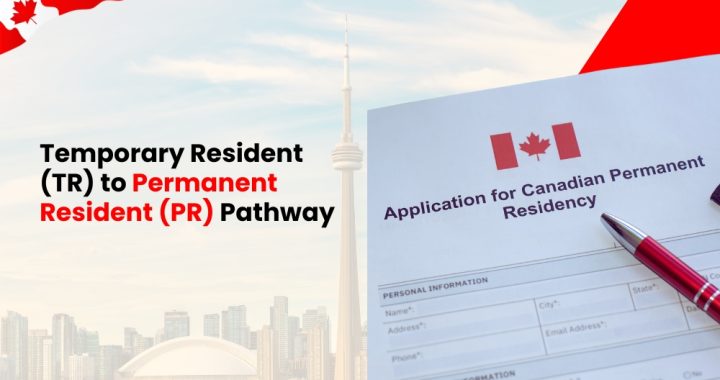 From Temporary to Forever: Your Ultimate Guide to Canada’s Temporary Resident to Permanent Resident Status in 2025
From Temporary to Forever: Your Ultimate Guide to Canada’s Temporary Resident to Permanent Resident Status in 2025  Who Can Apply for Humanitarian and Compassionate in Canada: Complete Guide
Who Can Apply for Humanitarian and Compassionate in Canada: Complete Guide 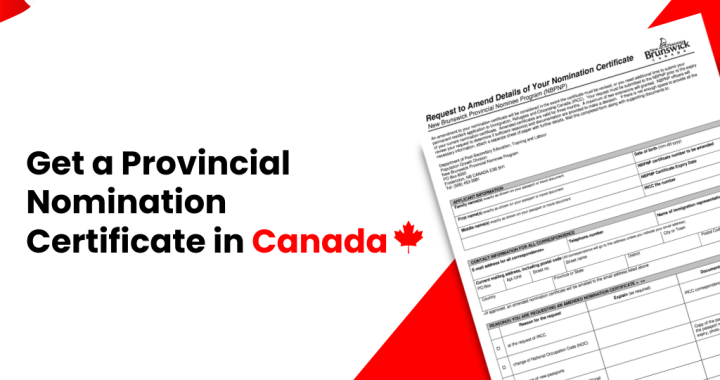 How to Get a Provincial Nomination Certificate in Canada
How to Get a Provincial Nomination Certificate in Canada  Can Americans Work in Canada?
Can Americans Work in Canada?  How to Convert a Visitor Visa to a Work Permit in Canada
How to Convert a Visitor Visa to a Work Permit in Canada 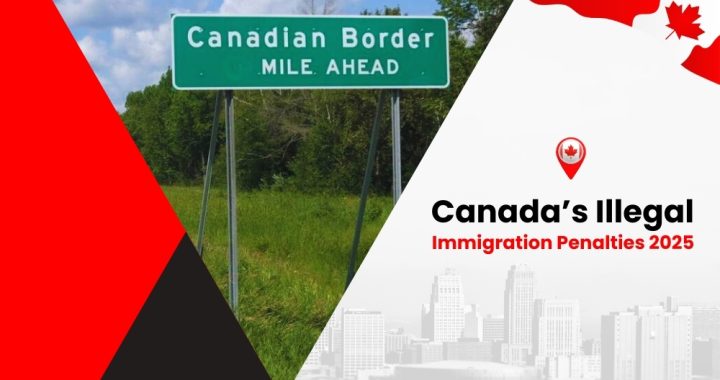 Canada’s Illegal Immigration Penalties 2025
Canada’s Illegal Immigration Penalties 2025 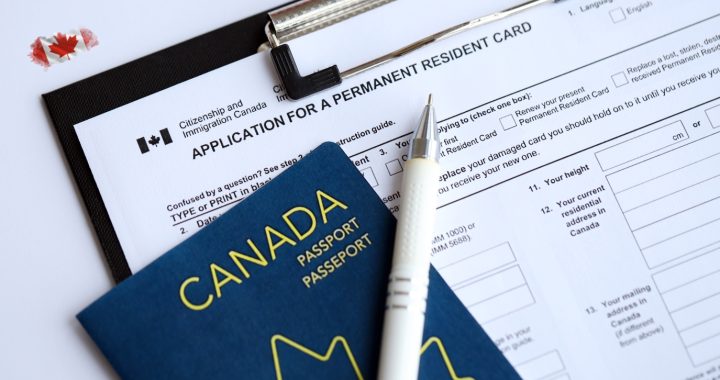 Estimate of Total Cost to Get Permanent Resident Status in Canada as Updated in 2025
Estimate of Total Cost to Get Permanent Resident Status in Canada as Updated in 2025